The Maker The Charles Causley Literary Blog
‘Music from Surprising Spaces’ – Discover Arlo Anwin’s latest series of compositions
‘Music from Surprising Spaces’ is a series of compositions I have been creating; built from sounds collected from a specific town, space or place and then complimented by instrumentation composed to compliment and enhance. The concept is an exercise in finding beauty in the space around us. My first composition in this series is composed from, and for, Launceston. Of course, how could I do this without referencing Charles Causley? In this blog I will be chatting about the concept behind this composition series, talking about how we listen and of course how Charles Causley, and what he ‘heard’, plays a role.
Throughout our lives we increasingly learn not to listen. As children we are consistently told to ‘focus’, not to pay attention to a random unfolding in our space and instead to pay attention to the task in hand. We are directed to listen, only, to that voice of rationality and authority in front of the class…everything else is a distraction.
As we grow older; we learn that to achieve the day to day tasks of modern living we do have to ‘focus’. Our teachers were right. All the sounds around us, from bird song to traffic noise is a distraction from ‘the task’ – to sit and listen and notice does not seem to help get things done. So, we carry on practicing and practicing.
The more we do this, the more our brain ‘learns’ to not listen to the sounds around us, to sort out what is ‘important’ and ‘what is not’. If our brains struggle to do achieve this level of sharpened focus you will find yourself without doubt struggling to negotiate the demands of modern life, probably earn some kind of diagnosis and probably some kind of medication too.
A slightly unfair challenge to ask us to ‘switch off to the sounds of the space’, since our acoustic ecology, or the sounds around us, have become exponentially attention grabbing in the past twenty years alone. Almost every space on earth is louder, busier, more complex than ever before. It actually takes more work for our brains to ignore these sounds, so we practice harder. It’s a vicious cycle.
Of course not listening to those sounds in our surroundings, disconnects us from the world around us. But not only disconnecting from the classical beautiful bird song, we disconnect from everything; Machines, humans and ‘nature’ – it quite simply makes us more isolated and ‘sad’. We know mindful practice unquestionably increases well being, or in other words practicing ‘noticing’ makes us happier and counters this. I think from a sound perspective this is because when we notice the sounds around us we have the ability to find beauty in everything.
If we don’t take the time to notice how on earth can we see somethings qualities? If you walk past a Monet on a daily basis, practice ignoring it, not paying it any attention beyond acknowledging its presence, you will never see it as ‘beautiful’ or in fact enjoy it… it would just be another ‘thing’.
This project is all about finding the beauty in a space, and presenting it to the public. By using sound collected from a space; when we ‘sit and listen’ we can find its beauty… we can notice. By creating these sounds into a composition with other instrumentation my aim is to show the listener that music, and beauty, is everywhere.
My pilot composition for this project is for and from Launceston. So the composition will be constructed from sounds I collect from the space. I want sounds that are more than just an obvious representation of the space… I want sounds to be collected from the spaces own ecology, sounds that are present, sounds that might have played a part in shaping the town and its people.
Charles Causley of course is a significant part of Launceston’s recent history and his poems communicated Launceston to a wider world, so the sounds Causley heard informed his work – as a poet he noticed, he looked and listened. The acoustic ecology (the sounds around him) that he lived in would have contributed in some way to how he saw things, how he wrote and in turn what people read.
With that in mind it was a ‘no brainer’ that some of the sounds I ‘collected’ had to be from Charles Causley’s home, from his acoustic space.
My first port of call after a reflective walk around Cyprus Well was the garden. Its a uniquely peaceful spot. I didn’t know Charles, but I’d be surprised if he didn’t spend time here reflecting. The sounds of course would be different to what they were when he sat here, but still many elements will remain the same… the same trees blowing in the wind, that exact acoustic reverb/echo created by the shape of the buildings around.
When I record in the space I like to sit and do a short sketch to ultimately ‘dial into’ the space, to help notice things
Ambient sounds like the recording of the Cyprus Well garden are wonderful for the composition. To be a kind of foundation for other musical ideas. But I also really enjoy taking sounds from the space and manipulating them into instruments themselves.
So I’m happy to say the drum Kit for this particular composition will be constructed from Charles Caulsey’s typewriter…
Having these sounds in the composition alongside a host of other field recordings from around Launceston means this composition is an opportunity for listeners to find beauty in the space by simply listening but also know what they are hearing is not simply a collection of moments that I experienced but also sounds that have played a part in other peoples lives. Sounds that have gone on to play a part in creating more beauty.
The sounds I collected from Cyprus Well sat alongside other sounds collected from around Launceston and in fact sounds collected by others from my workshops at Launceston Library and from working with local schools including St Stephens school. The instrumentation included Cello, Ukulele and Kalimba.
The debut performance was a huge success on the 24th of May at the Launceston Guildhall and I’m very excited to be bringing to the Causley festival on the 30th of July. The live performance is unique with an element of improvisation that makes each show different.
I’d like to thank the Library for supporting the project and all the young people who contributed such amazing sounds. Asone hub for enabling me to work with local teachers to pass on some ideas and skills, and particularly to Tanya Moore and Anna Minnear for getting the word out there and to Kari gilbert and the students at St Stephens for such creative recordings. A huge thank you to Launceston Town Council and the town clerk for their significant support in making the debut performance possible. Last but not least Id of course love to thank the Causley Trust for their support and giving me access to Cyprus Well.
Words by Arlo Anwin







